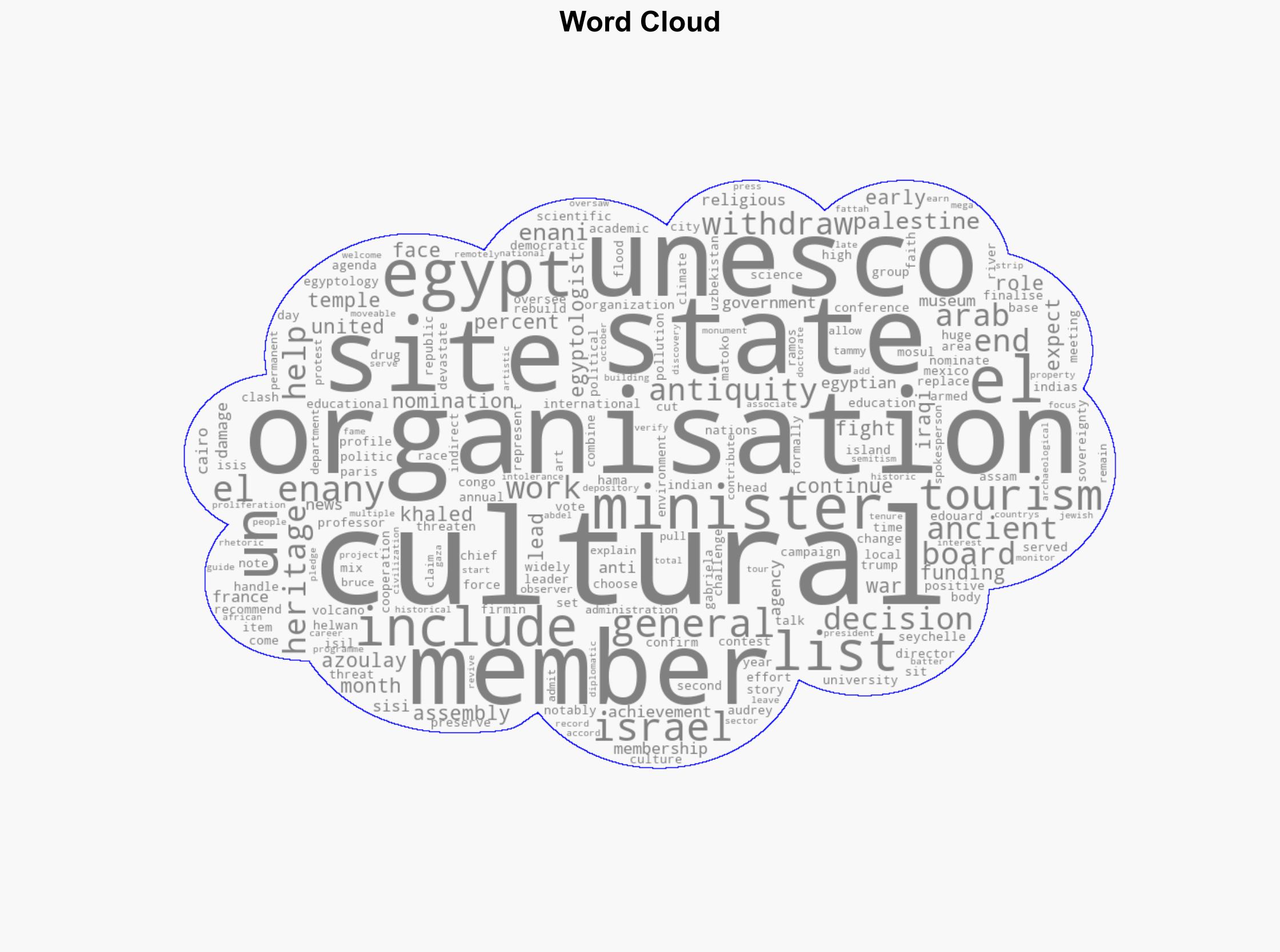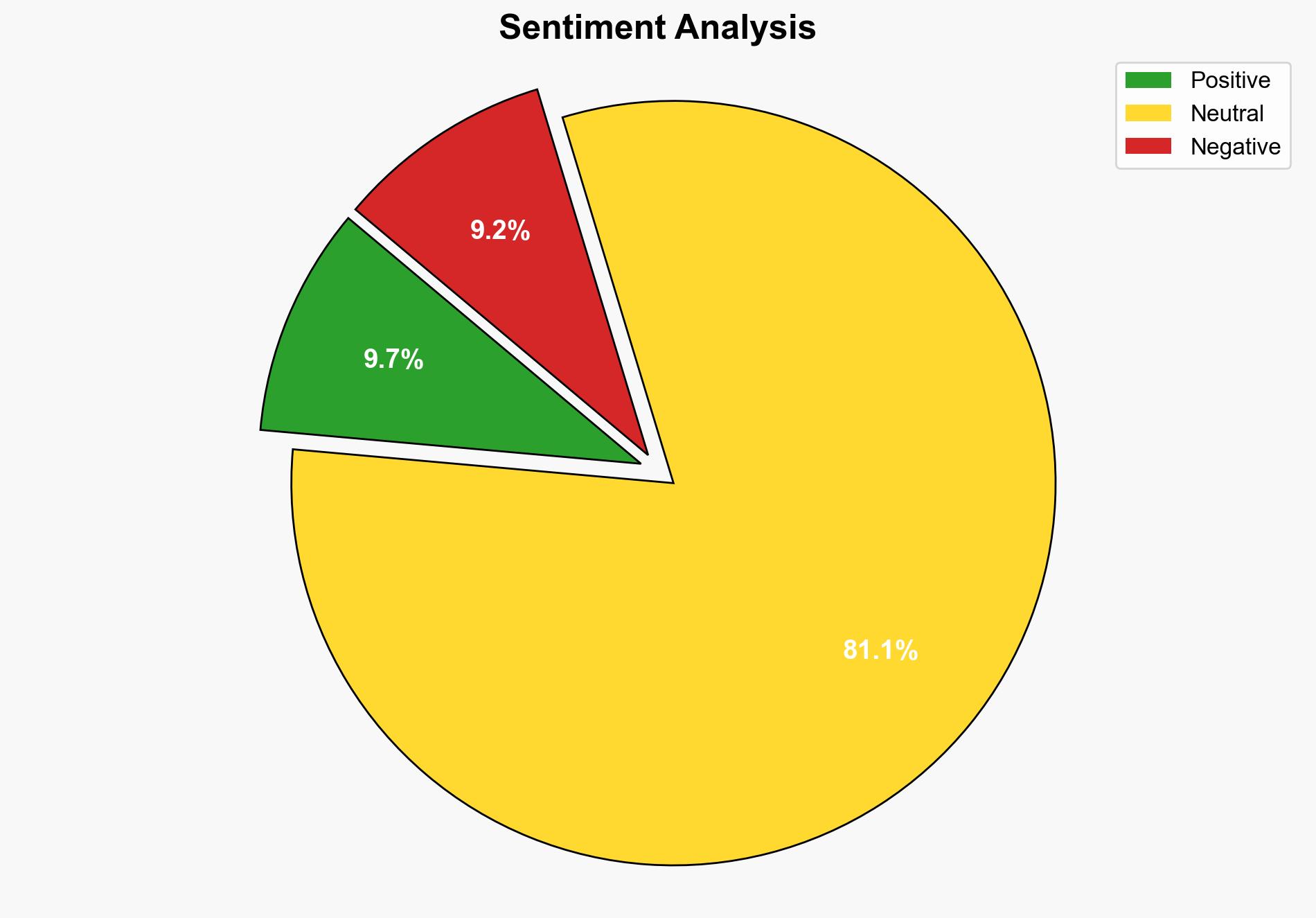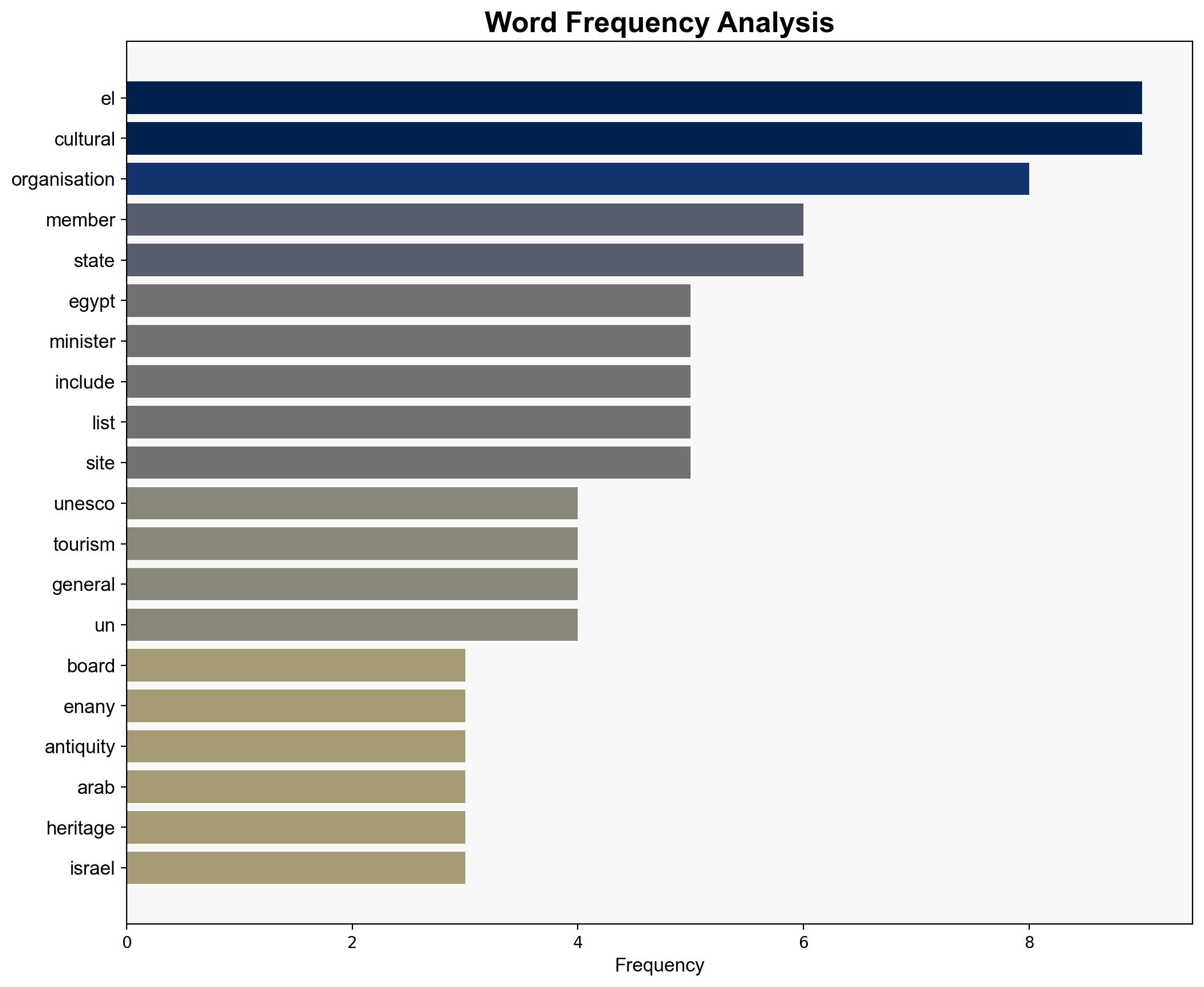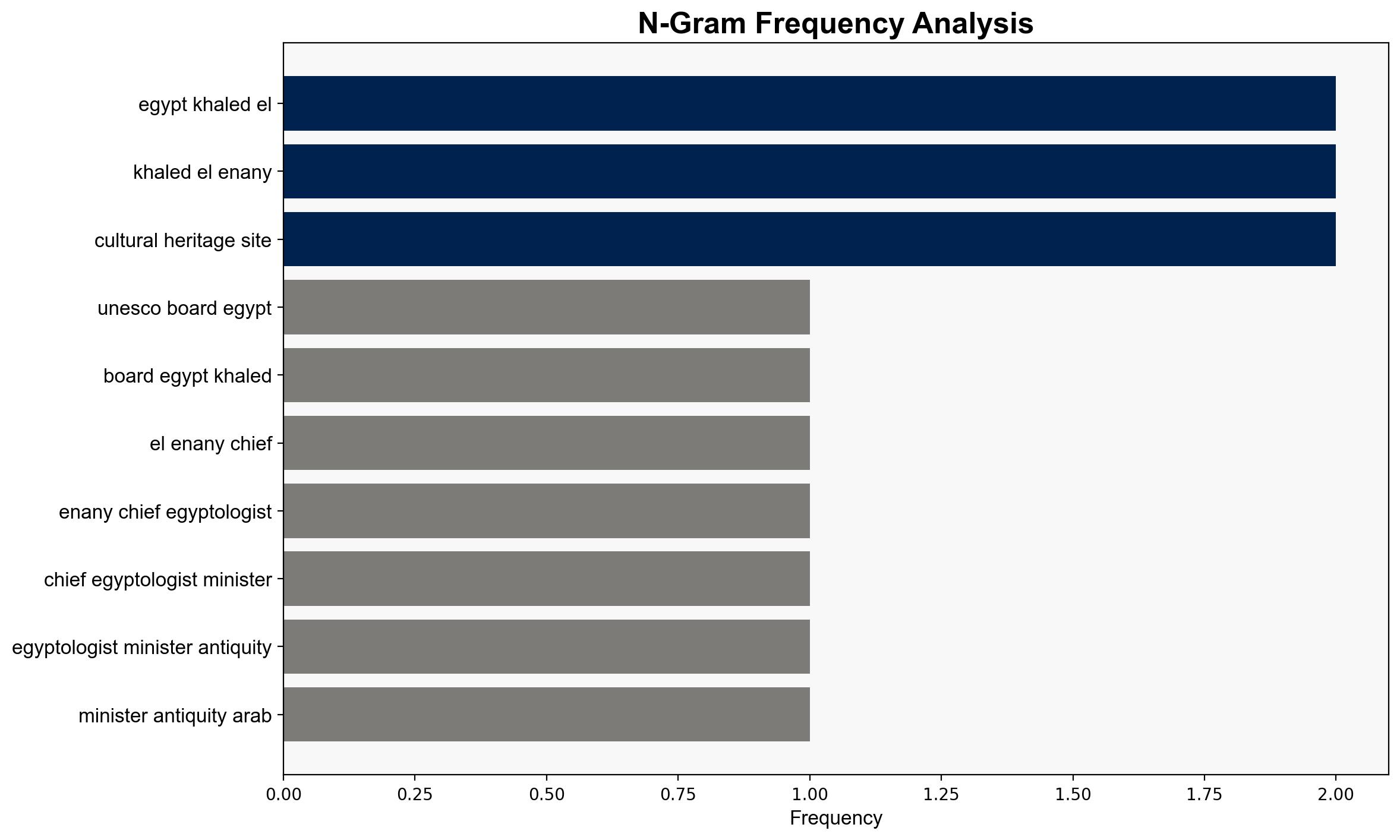UNESCO board backs Egypts Khaled el-Enany as its next chief – Al Jazeera English
Published on: 2025-10-07
Intelligence Report: UNESCO board backs Egypt’s Khaled el-Enany as its next chief – Al Jazeera English
1. BLUF (Bottom Line Up Front)
The nomination of Khaled el-Enany as UNESCO’s next chief suggests a strategic shift towards enhancing cultural diplomacy and heritage preservation, with a moderate confidence level in this hypothesis. The recommended action is to monitor the implications of this leadership change on UNESCO’s policies and international cultural cooperation, particularly in the Middle East and North Africa (MENA) region.
2. Competing Hypotheses
Hypothesis 1: Khaled el-Enany’s nomination is primarily driven by Egypt’s strategic aim to bolster its cultural diplomacy and influence within UNESCO, leveraging his expertise and political backing to advance Egypt’s interests in global cultural heritage and tourism.
Hypothesis 2: The nomination is a response to internal UNESCO dynamics, aiming to address political challenges and funding issues by appointing a leader with a strong background in cultural heritage who can navigate complex international relations and secure broader support for UNESCO’s initiatives.
Using ACH 2.0, Hypothesis 1 is better supported due to Egypt’s active campaign for the role and its historical emphasis on cultural diplomacy. Hypothesis 2, while plausible, lacks direct evidence of internal UNESCO motivations influencing the decision.
3. Key Assumptions and Red Flags
– Assumption: Khaled el-Enany’s nomination will lead to increased Egyptian influence within UNESCO.
– Red Flag: Potential bias in assuming Egypt’s influence without considering other member states’ interests.
– Missing Data: Lack of detailed insight into the decision-making process within UNESCO’s board.
4. Implications and Strategic Risks
– Enhanced Egyptian influence could shift UNESCO’s focus towards MENA cultural heritage, impacting global project prioritization.
– Potential geopolitical tensions if perceived as prioritizing certain regions over others, especially in light of past funding cuts and political challenges.
– Risk of further politicization of UNESCO’s agenda, potentially affecting its credibility and effectiveness.
5. Recommendations and Outlook
- Monitor UNESCO’s policy shifts and project allocations under Khaled el-Enany’s leadership to assess changes in regional focus.
- Engage with UNESCO to ensure balanced representation of global cultural interests, mitigating risks of regional bias.
- Scenario Projections:
- Best Case: Increased funding and support for global cultural heritage projects, fostering international cooperation.
- Worst Case: Heightened geopolitical tensions and reduced effectiveness due to perceived regional favoritism.
- Most Likely: Gradual shift towards MENA interests with moderate impact on UNESCO’s global agenda.
6. Key Individuals and Entities
– Khaled el-Enany
– Audrey Azoulay
– Abdel Fattah el-Sisi
– Tammy Bruce
7. Thematic Tags
national security threats, cultural diplomacy, international relations, regional focus





